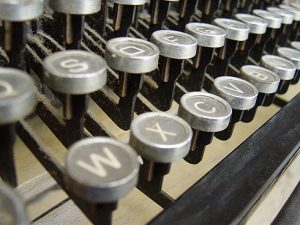
BALTIMORE- At the risk of over-simplifying Maryland’s $40 billion-plus budget, the situation the state faced back in 2008 when it decided to legalize casino gambling was not that different from what many families were grappling with then.
It was the scariest point in the great recession, and commitments made during better times, in the state’s case to ramp up education funding, in that of many families to buy a bigger house with an adjustable-rate mortgage, were suddenly looking unaffordable. Opening up a new state revenue stream in the form of legalized slots was more or less like a beleaguered homeowner getting a second, part-time job and putting all the new money toward covering part of the mortgage. It may have been the least painful decision available and it may have allowed the family to pay the cable bill and order a pizza now and then, but it doesn’t mean the house is getting paid off any faster.
Likewise, casino revenues cover part of the money state law mandates for aid to public schools, less than 10 percent, actually, but nothing about the 2008 referendum allowing slot machines or the 2012 referendum expanding gambling changed the education funding formulas. The gambling money allowed the state to avoid other bad options, like additional tax increases or spending cuts on health care, public safety, the environment and other priorities, but it does not and never will result in a single extra dime going to education.
So, voters, if you were surprised to read in Sunday’s Sun that some school systems, including Baltimore’s, are seeing cuts in state aid to education at a time when the state’s casinos are taking in record revenues, all we can say is, we tried to warn you. When former Governor Martin O’Malley proposed slots in 2007 with the ostensible purpose of aiding education, we called the notion “blatantly misleading” because he and his successors could “redirect general fund money that would ordinarily be spent on education for other purposes and thus make the impact of slots revenue on schools meaningless.”
In 2012, when he proposed expanding gambling by adding another casino in Prince George’s County and allowing table games, we observed “nothing in the law says that the state is actually required to spend more on education than it would have otherwise. More money in the education trust fund can mean, and heretofore always has meant, that less general fund money is sent to the schools, freeing it up for other purposes. That’s what happened with the lottery, keno and slots, and that’s what would happen if Question 7 passes.”
If voters got a different impression, it was surely from the casino owners and allied interests who lobbied to legalize gambling and then to expand it. They spent tens of millions of dollars on advertising in 2008 and 2012 to convince Marylanders that they would be the winners if they approved the referendums, and that they would be the losers in the form of millions of Maryland gamblers’ dollars flowing to schools in West Virginia and Delaware if they voted no.
Likewise, the initial promise that Maryland would get the largest share of gambling proceeds of any state to support education turned out not to be the full story. In the beginning, Maryland’s tax rate on slots was 67 percent, with 33 percent going to the casinos and between 48.5 percent and 51 percent going to the Education Trust Fund. Fast forward eight years, and with various tweaks and one big expansion, things have changed. In December, thanks to the opening of the MGM at National Harbor, Maryland smashed its previous record for casino revenue, bringing in a total of $135 million for the month.
The casinos got 58 percent of that, the Education Trust Fund got 31 percent. And the tables are set to tilt even further. Maryland Live and the Horseshoe Casino are now allowed to keep a larger share of slots revenue to compensate them for the competition from MGM, and they could potentially get even more in the years ahead. Hollywood Casino in Perryville is slated to see its percentage take from slots go up as well.
On balance, Maryland’s decision to legalize casinos in 2008 was probably the least bad option available. If we hadn’t, taxes would be higher or spending on schools would be lower, and maybe both. But as the casinos come back to Annapolis year after year for changes large and small, voters would do well to remember the fundamental rule of gambling: The house always wins.
Courtesy of the Baltimore Sun
